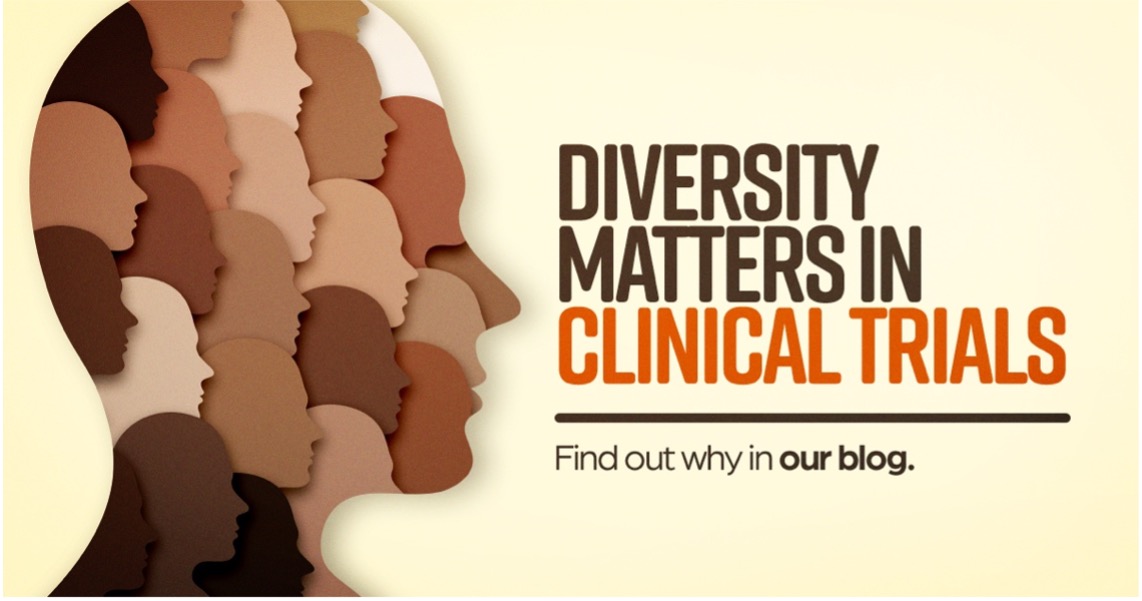We are celebrating April as National Minority Health Month is a crucial reminder to include varied diversity in advancing health. From medical research to treatments, the value of diversity in clinical trials is becoming increasingly evident. Learn more about its relevance in our blog!
National Minority Health Month
Every April, the annual observance of National Minority Health Month takes place to bring awareness to the health disparities experienced by minority communities. This year’s theme, “Better health through better understanding,” focuses on increasing health literacy for patients from all walks of life. Its purpose is to raise awareness of the unique health-related challenges faced by specific populations and the potential solutions individuals and organizations can implement or advocate for. This month of recognition is an essential step towards creating equal opportunities in healthcare. While striving towards improved representation within the research community.

What Is Diversity in Clinical Studies?
Diversity in clinical trials is about much more than just race and ethnicity. It encompasses any factor affecting trial results’ safety, effectiveness, and trust. That includes age, sex, gender identity, race, ethnicity, geography, and socioeconomic status. Which can all impact an individual’s ability to access health care and affect their reaction to the medication they receive. Recognizing these essential factors is becoming even more necessary in healthcare, given how quickly our world changes.
Allowing researchers to focus on previously neglected participant characteristics can result in more personalized treatments and better health outcomes. It’s important to note that many of the most prevalent illnesses, such as diabetes and kidney disease, predominantly affect minority groups. Ensuring clinical trials adequately reflect the range of patients ultimately helps increase trust in patient-doctor relations and leads to more reliable research results. When all groups are included in clinical trial efforts, it leads to benefits such as improved validity of collected data and greater access to therapies for a larger population.
We All Have a Role to Play – How We’re Involved
At North Georgia Clinical Research Center, we’ve committed to putting diversity at the forefront of everything we do. This is especially true for our clinical studies, which offer equal access to individuals of all cultural backgrounds. Representation of minority groups and genders can help ensure better treatments are being developed for a wider variety of patients. We also want to see that this message reaches a broader audience, so we encourage open discussions about the importance of diversity in all settings, especially in research. Together we can take active strides to keep the conversation alive and create greater acceptance and understanding between varied groups of people worldwide!

Learn more about how to get involved in clinical studies at North Georgia Clinical Research! Visit our website or call us at (678) 494- 5735 today. The benefits of tomorrow start today- be a part of the change!
Resources:
https://www.nimhd.nih.gov/programs/edu-training/nmhm/
https://aasldpubs.onlinelibrary.wiley.com/doi/full/10.1002/cld.948


